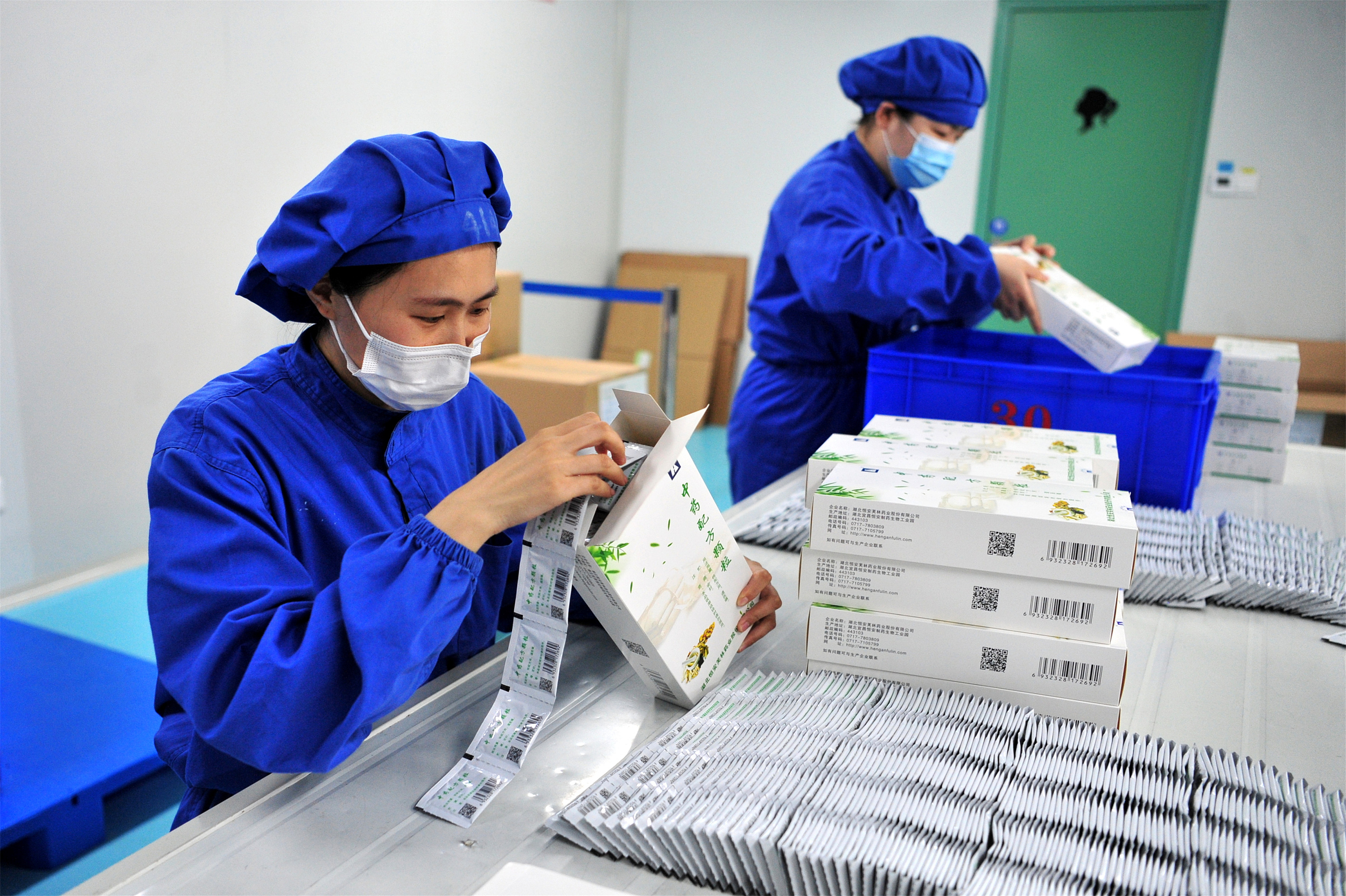
Workers package pharmaceutical products in a?plant?in?Hubei's?Yichang?city.?(PHOTO: VCG)
By CHEN Chunyou & WU Chunxin
The biomedicine industry is known as a "sunrise industry" due to its close connection with high technology, broad development prospects and huge market potential. Yichang High-tech Zone (YHZ) is a prime example.
In 2020, the YHZ Biomedical Industry Base was identified as the National Torch Program Specialized Industrial Base by the Ministry of Science and Technology, and the pharmaceutical industry cluster was listed as one of the key growth industry clusters of Hubei province.
YHZ is home to more than 250 enterprises in the field of biomedicine. In 2021, the revenue of the biomedicine industry reached 47 billion RMB.
YHZ has introduced a number of public technical service platforms, such as Yichang Biomedical Research Center, Hubei Jinque Medical Laboratory, and Yichang Biotechnology Public Service Center.
Eastern Valley U is a national professional incubation platform in Yichang High-tech Zone Biomedicine Industrial Park (BIP), and covers an area of more than 300 mu (about 20 hectares).
Over the past five years, Eastern Valley U has attracted and cultivated more than 150 biomedical industry chain enterprises, including 23 national high-tech enterprises, four provincial-level "little giant" enterprises, and six listed enterprises. The output value reached 1.35 billion RMB in 2021.
"We introduce leading enterprises, which likewise attract their upstream and downstream enterprises of the industrial chain to accumulate here. Enterprises can exert a positive influence on each other, meet each others' demands and cooperate together. Thus, the industrial chain is gradually improved and the innovation capacity is further enhanced," said Wu Penglu, vice-general manager of the Eastern Valley U.
In order to support the industrialization of generic drugs' research, YHZ Generic Drug Technological Innovation Public Service Center built three public experimental platforms centering on fermentation, extraction and detection technology, and 14 laboratories specializing in different research fields, which make it convenient for enterprises to carry out technological innovation and R&D.
Guo Kangxin, director of the management committee of YHZ, said that the zone will continue to strengthen the capacity of leading enterprises, and accelerate the cultivation of small and micro enterprises. He noted that 70 biomedicine enterprises above the designated level and 10 new high-tech biomedicine enterprises are to be cultivated this year.
The R&D expenditure of enterprises at BIP accounts for more than seven percent to date, and five new R&D platforms, along with innovation and entrepreneurship platforms at and above the provincial level, were established. It is expected that by 2023, the proportion of enterprises' R&D expenditure can reach nine percent, and 10 R&D and entrepreneurship platforms will be created.
Wang Li, vice governor of Hubei province, said Yichang aims to build a biomedical industry cluster, which focuses on the transformation of people's lifestyles to promote R&D of products, and will maintain a high intensity of R&D investment, creating more possibilities for long-term development.
The trio will conduct a series of experiments in fields such as life science, fluid physics, combustion science and materials science. Notably, this is the first time that fruit flies have been taken on a Chinese space mission as experimental subjects. What made scientists choose fruit flies? What experiment will they undergo?
